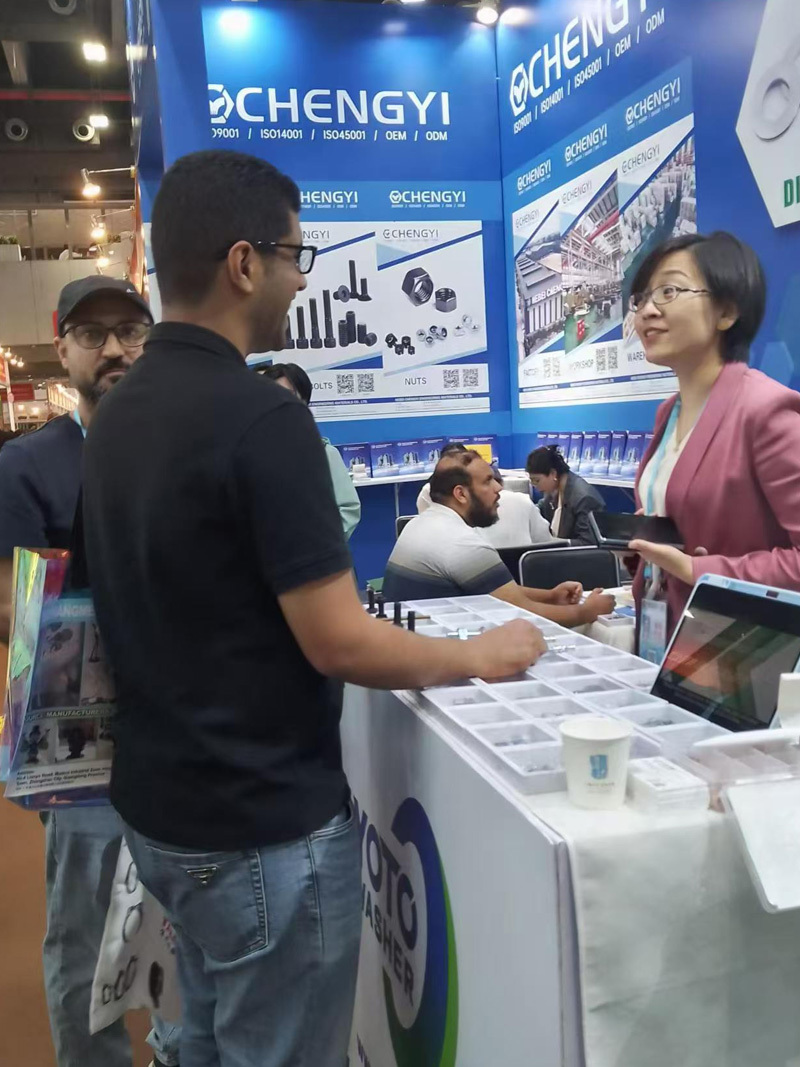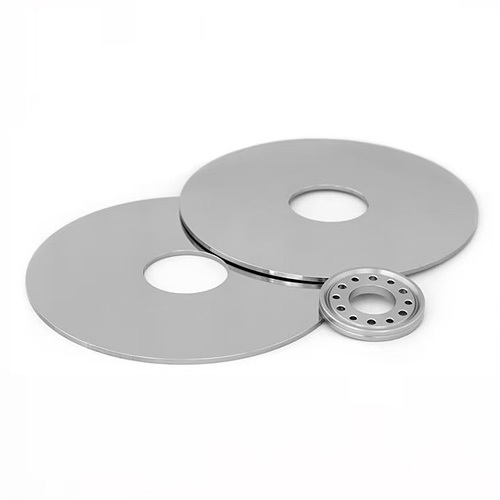Why You Should Consider Anti-Return Washers for Enhanced Equipment Reliability
2025-05-08
Why You Should Consider Anti-Return Washers for Enhanced Equipment Reliability
In the realm of industrial equipment and components, ensuring reliability and performance is paramount. One often-overlooked component that plays a crucial role in achieving this reliability is the anti-return washer. In this article, we will delve into what anti-return washers are, their advantages, applications, and why they are indispensable for enhancing equipment reliability.
Understanding Anti-Return Washers
Anti-return washers are specially designed components that prevent the unintentional loosening of fasteners and connections in various machinery and equipment. They serve as a vital safeguard against mechanical failures that can lead to costly downtime and repairs. These washers are commonly used in various environments, from automotive and aerospace to manufacturing and construction.
How Anti-Return Washers Work
Anti-return washers function through a simple yet effective design. They typically feature a unique serrated or notched surface that, when placed under a bolt or nut, creates friction against the connected surfaces. This friction resists rotation, preventing loosening due to vibrations or external forces. By integrating an anti-return washer into your assembly, you can significantly enhance the reliability of your equipment.
The Importance of Equipment Reliability
Equipment reliability is a critical factor in maintaining operational efficiency. Mechanical failures can lead to production halts, increased maintenance costs, and safety hazards. By utilizing anti-return washers, industries can mitigate these risks and ensure their machinery operates smoothly, resulting in higher productivity and reduced operational costs.
Benefits of Using Anti-Return Washers
Implementing anti-return washers in your machinery comes with a multitude of benefits that enhance overall equipment performance. Some of the key advantages include:
1. Enhanced Mechanical Stability
The primary function of anti-return washers is to provide mechanical stability to fasteners. By preventing loosening, these washers ensure that components remain securely fastened, reducing the likelihood of mechanical failure. This enhanced stability is particularly crucial in high-vibration environments.
2. Increased Equipment Lifespan
With reduced wear and tear on fasteners and connected components, anti-return washers help extend the lifespan of machinery. The prevention of loosening minimizes damage caused by vibrations and shock loads, resulting in longer service intervals and reduced frequency of repairs.
3. Cost-Effectiveness
While the initial investment in anti-return washers may seem minimal, the long-term savings can be substantial. By preventing equipment failures and reducing maintenance costs, these washers contribute to a more cost-effective operation. The reduced downtime associated with mechanical failures also leads to increased overall productivity.
4. Simplified Maintenance
Anti-return washers simplify maintenance processes by reducing the frequency of inspections and adjustments required for fasteners. This can streamline maintenance schedules, allowing for more efficient use of resources and time in an industrial setting.
5. Versatility Across Applications
One of the standout features of anti-return washers is their versatility. They can be used in a wide variety of applications, including automotive assemblies, heavy machinery, and industrial equipment. This adaptability makes them a valuable addition to any operational toolkit.
Applications of Anti-Return Washers
Anti-return washers find applications across various industries, owing to their reliability and effectiveness in preventing fastener loosening. Here are some prominent applications:
1. Automotive Industry
In the automotive sector, anti-return washers are commonly used in engine assemblies, suspension systems, and other critical components. Their ability to withstand vibrations and harsh environmental conditions makes them ideal for maintaining vehicle integrity and performance.
2. Aerospace Engineering
In aerospace applications, the reliability and safety of every component are of utmost importance. Anti-return washers play a vital role in securing fasteners in aircraft structures, ensuring that these connections remain intact under extreme conditions.
3. Construction Machinery
Construction equipment often operates in challenging environments where vibrations and shocks are commonplace. By utilizing anti-return washers, construction machinery can achieve greater reliability and reduce the risk of mechanical failures on job sites.
4. Industrial Equipment
From manufacturing machines to conveyor systems, anti-return washers are integral to maintaining the reliability of industrial equipment. Their use in assembly lines helps ensure that components remain secure, reducing the risk of downtime due to fastener failure.
5. Renewable Energy Systems
In renewable energy systems, such as wind turbines and solar panel mounts, anti-return washers are crucial in keeping fasteners secure amidst changing environmental conditions. This contributes to the longevity and efficiency of these energy-producing systems.
Best Practices for Using Anti-Return Washers
To maximize the effectiveness of anti-return washers, it’s essential to follow best practices during installation and maintenance. Here are some tips to consider:
1. Select the Right Washer Type
Choose the appropriate type of anti-return washer based on the specific application. Different washers may vary in size, material, and design, which can affect their performance in particular environments.
2. Ensure Proper Installation
Follow manufacturer guidelines for the correct installation of anti-return washers. Ensure they are seated properly under fasteners to achieve optimal friction and prevent loosening.
3. Regular Inspections
While anti-return washers reduce the frequency of required inspections, it’s still important to perform regular checks. This ensures that the washers and fasteners are functioning correctly and that no wear or deterioration has occurred.
4. Combine with Other Locking Mechanisms
In high-stakes applications, consider combining anti-return washers with other locking mechanisms, such as lock nuts or thread-locking compounds. This multi-faceted approach can provide an extra layer of security against loosening.
5. Maintain a Clean Working Environment
Debris and contaminants can affect the performance of anti-return washers. Keeping the working environment clean during assembly and maintenance can help ensure these components function as intended.
Frequently Asked Questions About Anti-Return Washers
1. What are anti-return washers made of?
Anti-return washers can be made from various materials, including stainless steel, carbon steel, and sometimes plastic composites, depending on the application requirements such as temperature tolerance, corrosion resistance, and load capacity.
2. How do I know if I need anti-return washers for my application?
If your machinery or equipment experiences vibrations or dynamic loads, or if you notice frequent loosening of fasteners, anti-return washers may be beneficial in enhancing reliability.
3. Can anti-return washers be reused?
While anti-return washers can sometimes be reused if they show no signs of wear or damage, it's typically recommended to replace them to ensure optimal performance and reliability in critical applications.
4. What are the signs of a failing anti-return washer?
Signs of a failing anti-return washer include visible wear, deformation, or discoloration due to heat. Loose fasteners or recurrent mechanical failures can also indicate washer failure.
5. Are there any specific installation tools needed for anti-return washers?
While specialized tools may not be necessary, using torque wrenches or appropriate socket sets can ensure that fasteners are tightened correctly without damaging the anti-return washers.
Conclusion
In conclusion, anti-return washers are essential components that significantly enhance equipment reliability across various industries. Their ability to prevent loosening of fasteners under vibrations and dynamic loads can lead to improved mechanical stability, increased equipment lifespan, and reduced maintenance costs. By understanding their benefits, applications, and best practices for installation, industries can leverage the advantages of anti-return washers to achieve optimal operational efficiency. Investing in these innovative components is a strategic decision that contributes to the long-term success of your machinery and equipment.
Keywords:
Hot Products
Related news
Handan Yongte Fastener Manufacturing Co., Ltd. shines at the 135th Canton Fair
2025-05-30
Paving the way for the future, embracing excellence, and building dreams with Yongte
2025-05-30
Understanding Tab Washers with Long Tab and Wing: Essential Components for Industrial Applications
2025-05-29










